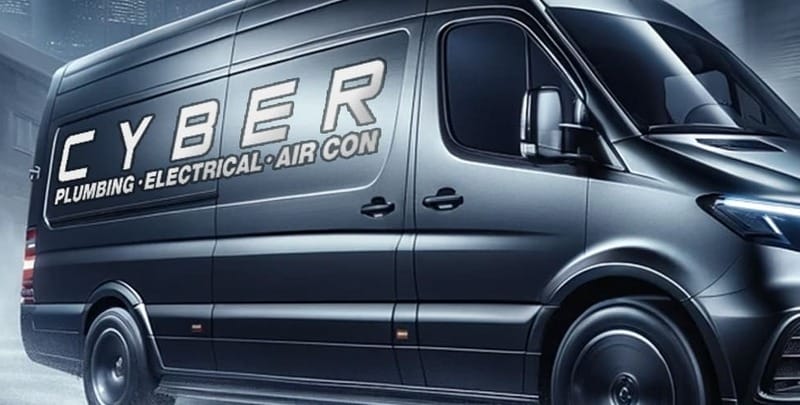
Are Gas Wall Heaters Safe?
When the temperature drops, staying warm and cosy becomes a top priority, and for many households, gas wall heaters are a popular choice. But with their growing popularity, a common question arises: “Are gas wall heaters safe?”
This question is crucial for anyone considering this heating option, whether you’re looking to install a new unit or simply ensure your current one is functioning properly.
Gas wall heaters offer several benefits, such as efficient heating and cost-effectiveness, but like any appliance, they come with their own set of safety considerations. Understanding these factors can help you make informed decisions about their use and maintenance.
From potential gas leaks to ventilation issues, knowing the risks and how to mitigate them is key to ensuring a safe and warm home environment. In this blog, we’ll explore the safety aspects of gas wall heaters, providing you with practical tips and insights to keep your home both warm and secure during the colder months.
Understanding Gas Wall Heaters
Understanding how gas wall heaters work is essential to addressing safety concerns. These gas heaters use natural gas or propane to generate heat, which is then circulated throughout the room.
While they are generally safe when used correctly, it’s important to be aware of potential risks such as gas leaks, carbon monoxide poisoning, and inadequate ventilation.
Let’s delve into the safety aspects of gas heaters, exploring how they operate and what measures you can take to ensure they function safely. We’ll provide practical tips on installation, maintenance and monitoring, helping you keep your home warm and safe throughout the chilly seasons.
Safety Features of Modern Gas Wall Heaters
When considering heating options for your home, gas wall heaters often come up as an efficient and economical choice. However, safety is a paramount concern for many homeowners.
The good news is that modern gas wall heaters are equipped with several safety features designed to protect your home and family.
Today’s gas wall heaters are built with advanced technology to minimise risks. Many models include oxygen depletion sensors, which automatically shut off the heater if the oxygen level in the room drops below a safe threshold, preventing potential carbon monoxide buildup. Additionally, modern heaters often have safety shut-off valves that stop the gas flow if the pilot light goes out.
Another key feature is the cool-to-the-touch surface, reducing the risk of burns, especially in homes with children or pets. Proper installation and regular maintenance are crucial to ensure these safety features function effectively.

Common Safety Concerns
When it comes to heating your home, gas wall heaters are a popular choice due to their efficiency and cost-effectiveness. However, safety is a top priority for any heating system. Let’s break down some common safety concerns:
- Gas leaks: One of the primary concerns with gas heaters is the risk of gas leaks, which can lead to fire hazards or explosions if not detected early. Regular inspections and proper installation are key to preventing leaks.
- Carbon monoxide poisoning: Inadequate ventilation or malfunctioning units can lead to carbon monoxide build up, a colourless, odourless gas that is extremely dangerous. Carbon monoxide leakage can be a silent killer, this is why unflued gas heaters are not recommended indoors. Modern gas heaters often come with carbon monoxide detectors or oxygen depletion sensors to mitigate this risk.
- Fire hazards: Placing flammable materials too close to the heater can pose a fire risk. Always ensure a clear space around the heater.
- Ventilation issues: Proper ventilation is crucial to ensure that fumes are safely expelled from your home. Blocked or inadequate vents can lead to dangerous situations.
These potential dangers also apply to other gas appliances. Let’s explore these concerns in more detail and provide tips on how to address them, ensuring your gas wall heater operates safely and effectively.
Proper Installation Practices
If you’re considering a gas wall heater for your home, understanding proper installation practices is essential for safety and efficiency.
Here are some key points to ensure a safe setup:
- Professional installation: Always hire a certified professional to install your gas wall heater. This ensures that the unit is set up according to local building codes and manufacturer guidelines, reducing the risk of leaks or malfunctions.
- Adequate ventilation: Proper ventilation is crucial to safely expel fumes and prevent carbon monoxide build up. Ensure that the heater is connected to a well-maintained venting system that directs exhaust gases outside your home.
- Secure mounting: Make sure the gas heater is securely mounted to the wall, away from flammable materials. This reduces the risk of fire hazards and keeps the unit stable.
- Regular inspections: Schedule regular inspections and maintenance checks to ensure all components are functioning correctly and safely.
What other heating options are worth considering? Let’s take a closer look.
Comparing Gas Wall Heaters with Other Heating Options
When it comes to keeping your home warm, you have several options, and you might be wondering, “Are gas wall heaters safe compared to other heating systems?” Let’s explore how gas wall heaters stack up against other popular choices:
- Electric heaters: Electric heaters are easy to install and generally considered very safe, as they don’t involve combustible gases. However, they can be more expensive to operate due to higher electricity costs compared to natural gas or propane.
- Ducted heating systems: Ducted heating provides consistent warmth throughout the entire house and often includes built-in safety features. However, installation and maintenance can be more complex and costly compared to gas wall heaters.
- Wood stoves (or combustion heaters): While wood stoves offer a cosy ambiance, they require regular maintenance and present a higher risk of fire if not properly managed. They also need a constant supply of wood and can create indoor air quality issues.
- Space heaters: This can include portable heaters, which can be handy but electric models chew up the power and boost your energy bills. Open flued gas heaters are also available but should only be used with adequate ventilation.
- Oil heaters: Oil heaters are efficient but can be expensive to run and maintain. They also carry the risk of oil leaks and spills, which can be hazardous.
Knowing what else is on the market helps you to make an informed decision about the best heating option for your home.
Stay Vigilant and Stay Warm
Gas wall heaters can be a safe and efficient heating option for your home, provided they are properly installed and maintained.
As we’ve explored, modern gas wall heaters come equipped with numerous safety features such as oxygen depletion sensors, safety shut-off valves, and cool-to-the-touch surfaces, all designed to minimise risks and ensure safe operation.
However, it’s crucial to remain vigilant about potential issues like gas leaks, carbon monoxide build up and proper ventilation for gas heating appliances. Regular maintenance and inspections by a qualified professional are essential to keep your heater running safely and efficiently.
Additionally, always ensure your heater is installed according to the manufacturer’s guidelines and local building codes to further enhance safety.
By understanding the common safety concerns and comparing gas wall heaters with other heating options, you can make an informed decision that best suits your home’s needs. With the right precautions and awareness, you can enjoy the warmth and comfort of a gas wall heater with peace of mind, knowing that your home is both comfortable and safe.
Please note: This information is provided for advice purposes only. Regulations differ from state to state, so please consult your local authorities or an industry professional before proceeding with any work. See Cyber Air Conditioning’s Terms & Conditions here.
